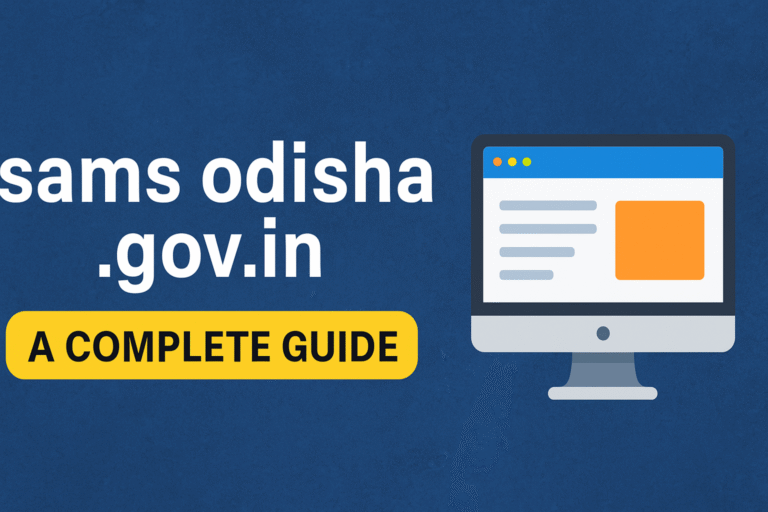Understanding Z SERP: The Future of Search Engine Results You Need to Know
Discover everything about Z SERP, how it’s transforming the way search results appear, and what it means for SEO, digital marketing, and online visibility in 2025. Learn how to use Z SERP to your advantage and stay ahead in search rankings.
What Is Z SERP?
In today’s fast-paced digital world, Z SERP is becoming a buzzword in the SEO and digital marketing space. But what does it really mean? Simply put, Z SERP refers to a next-generation Search Engine Results Page format that’s changing how users interact with search engines like Google, Bing, and even emerging AI-powered platforms.
Unlike traditional SERPs that only show blue links and snippets, Z SERP integrates AI summaries, real-time updates, featured visuals, voice results, and zero-click information panels — making it more dynamic and interactive than ever before.
The rise of Z SERP is not just a minor upgrade; it’s a full evolution in how information is presented and discovered. For website owners, bloggers, and brands like snokido.it.com, understanding this trend is crucial to staying visible and relevant.
Why Z SERP Matters in 2025
Z SERP matters because it’s redefining how users find, trust, and consume information. Search engines are no longer just listing web pages; they’re answering questions directly, often without the user even clicking through to a site.
Here’s why it’s a game-changer:
- User-Centric Results: Z SERP focuses on intent-based responses, meaning search engines understand why you’re searching, not just what you type.
- AI-Driven Insights: Advanced algorithms summarize the best content from multiple sources, giving users quick and smart answers.
- Zero-Click Experience: Many users get what they need from the SERP itself—through summaries, visuals, or AI answers.
- Voice and Visual Search Integration: As more people use voice assistants and image searches, Z SERP optimizes content for these new formats.
- Better Personalization: Z SERP tailors results to individual preferences, history, and location.
If you’re building your digital presence, ignoring Z SERP could mean missing out on a huge portion of organic visibility.
The Evolution from Traditional SERP to Z SERP
To really grasp the power of Z SERP, let’s take a look at how search results have evolved over time.
| Era | Type of SERP | Key Features | User Experience |
| 2000s | Classic SERP | Simple blue links, meta titles, and descriptions | Basic browsing, manual clicks |
| 2010s | Enhanced SERP | Featured snippets, knowledge panels, maps, images | Richer results, faster answers |
| 2020s | AI SERP | Smart snippets, voice results, zero-click content | Highly interactive and AI-powered |
| 2025 & Beyond | Z SERP | Fully integrated AI responses, real-time data, visual summaries | Personalized, conversational, and intelligent |
Z SERP isn’t just another upgrade — it’s a new search experience built around human behavior and artificial intelligence.
How Z SERP Impacts SEO Strategies
SEO experts are already adapting to the Z SERP environment. The old rules of keyword stuffing and link-building no longer guarantee top rankings. Instead, success now depends on trustworthiness, expertise, and engagement quality.
Here’s how Z SERP is changing SEO:
- Content Quality Over Quantity: Algorithms now favor well-researched, human-like, and experience-based articles.
- E-E-A-T Signals Matter: Experience, Expertise, Authority, and Trust are crucial for ranking in Z SERP.
- Structured Data Is Essential: Schema markup helps search engines understand your content contextually.
- Visual and Voice Optimization: Z SERP includes voice and visual elements, so optimize for both formats.
- AI-Friendly Content: Search engines analyze tone, clarity, and engagement depth using AI models.
If you’re aiming for your website (like snokido.it.com) to rank higher, your content should sound natural, answer real questions, and demonstrate deep understanding.
How Z SERP Works: The Technology Behind It
At its core, Z SERP uses a combination of artificial intelligence, natural language processing (NLP), and machine learning to deliver context-rich results.
Here’s how it functions behind the scenes:
- AI Crawling: Instead of just reading keywords, AI analyzes meaning, tone, and factual reliability.
- Entity Recognition: It identifies key entities (like people, brands, or events) and their relationships.
- Semantic Understanding: Z SERP understands intent, context, and nuance in each search query.
- Generative Response Layer: It synthesizes results from multiple trusted sources into a single intelligent response.
- Dynamic Visualization: Results are displayed with charts, summaries, images, or AI cards — all within the SERP.
This means users don’t have to dig through multiple pages — the Z SERP experience delivers what they need almost instantly.
Optimizing Content for Z SERP in 2025
If you’re a content creator, blogger, or marketer, optimizing for Z SERP is no longer optional — it’s essential. Here’s a simple roadmap to help your articles stand out:
Focus on Conversational Queries
- Target long-tail keywords and natural questions.
- Use conversational language to match AI-driven SERP styles.
- Example: Instead of “Z SERP meaning,” use “What does Z SERP mean and why is it important?”
Build Topic Authority
- Create clusters of related content.
- Link articles internally to show expertise and relevance.
- Back your claims with reliable data and case studies.
Optimize for AI Summaries
- Use clear headings, short paragraphs, and bullet points.
- Add direct answers at the start of each section.
- Include data or definitions in your introduction to increase snippet chances.
Use Multimedia and Schema
- Add images, videos, or infographics with relevant alt text.
- Implement schema markup for FAQs, reviews, and articles.
When optimized correctly, your content could appear as a featured snippet or even be directly quoted in the Z SERP’s AI panel.
The Role of AI in Z SERP
Artificial intelligence is the backbone of Z SERP. It decides which content deserves to appear and how it’s displayed.
AI evaluates your content based on:
- Clarity and Coherence: Is the content easy to read and understand?
- Depth and Accuracy: Does it provide valuable, correct, and verified information?
- Reader Experience: Does it engage, inform, and solve user problems?
- Trust Metrics: Is the author or website recognized as credible and consistent?
For example, if snokido.it.com publishes a well-researched article explaining “Z SERP and its SEO implications,” it’s more likely to be featured prominently — because it demonstrates authority and trust.
Common Mistakes to Avoid in the Z SERP Era
As SEO evolves, many marketers still cling to outdated habits. Avoiding these mistakes can help your content thrive in the Z SERP ecosystem:
- Ignoring AI Optimization: Not tailoring your writing for conversational queries is a missed opportunity.
- Keyword Stuffing: Overusing the focus keyword like “Z SERP” looks spammy and lowers ranking chances.
- Thin Content: Articles under 500 words won’t survive AI-driven competition.
- Neglecting Visual Content: Text-only posts miss visibility in visual-rich SERPs.
- Skipping Schema: Without structured data, AI may fail to understand your context.
Instead, focus on value, clarity, and real expertise. These are the keys to ranking higher in Z SERP and earning user trust.
Future of Search: What’s Next After Z SERP?
While Z SERP represents the present of search, it’s also paving the way for what’s coming next. Experts predict that future search models will be:
- Hyper-Personalized: Based on emotion, behavior, and even biometric cues.
- AI-Generated Conversations: Users will chat directly with search engines like virtual assistants.
- Integrated Across Devices: From phones to smart glasses, Z SERP results will follow users seamlessly.
- Real-Time Adaptive: Results will change dynamically as global news, trends, or data evolve.
In this future, websites like snokido.it.com that embrace Z SERP early will stand at the forefront of organic visibility and audience engagement.
Why Z SERP Is a Game-Changer for Bloggers and Businesses
If you’re running a blog or online business, Z SERP opens incredible opportunities. It rewards genuine content creators who share expertise, not just those who chase algorithms.
Here’s how Z SERP benefits you:
- Higher Visibility: Even smaller blogs can get featured in AI summaries.
- Better Credibility: The focus on trust and authority boosts reliable sources.
- Improved User Engagement: Visitors stay longer and interact more with your brand.
- Increased Organic Traffic: Optimized Z SERP content ranks higher and drives more clicks.
At snokido.it.com, adapting to Z SERP means staying competitive and future-proofing your online presence.
Conclusion: Embrace the Z SERP Revolution
The digital world is evolving faster than ever, and Z SERP stands at the center of that change. It’s transforming the way we find, consume, and trust online information.
By focusing on authenticity, expertise, and user value, your content can thrive in this new environment. Whether you’re a blogger, business owner, or SEO strategist, now’s the time to adapt, optimize, and grow with the Z SERP evolution.
Remember, the websites that adapt today will lead tomorrow’s search landscape. So, start optimizing your content for Z SERP — and watch your visibility rise to the top of search results.






